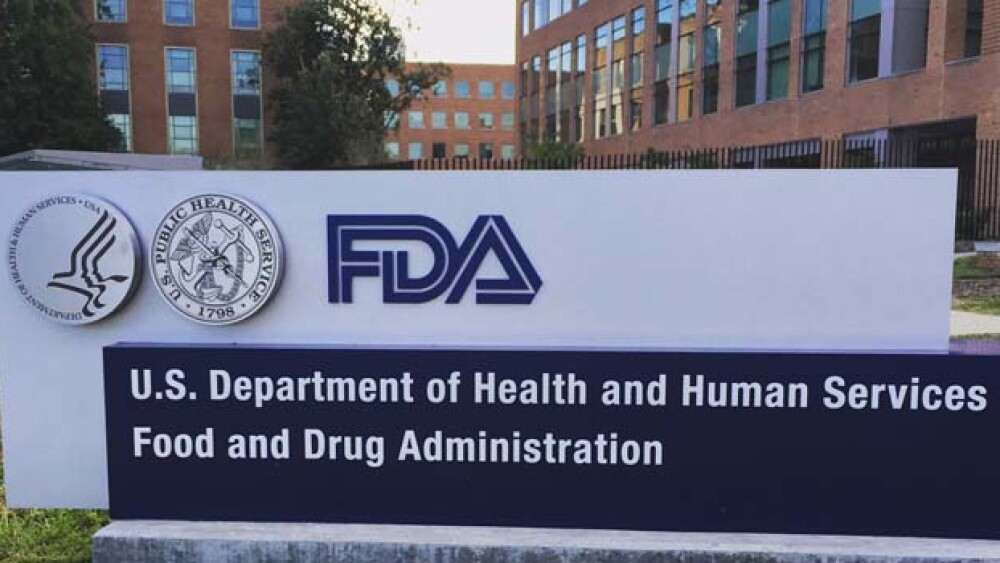U.S. Food and Drug Administration (FDA) Commissioner Scott Gottlieb gave a talk at The Pew Charitable Trusts on Friday, September 14, outlining the agency’s new approach to dealing with antimicrobial resistance (AMR).
U.S. Food and Drug Administration (FDA) Commissioner Scott Gottlieb gave a talk at The Pew Charitable Trusts on Friday, September 14, outlining the agency’s new approach to dealing with antimicrobial resistance (AMR).
The concern is based on estimates by the U.S. Centers for Disease Control and Prevention (CDC) that in the U.S. alone, 2 million people develop serious infections caused by antimicrobial-resistant pathogens, such as MRSA, every year. The fatality occurrence each year from these infections is approximately 23,000 people.
Gottlieb said, “We can’t count on outracing drug resistance. But we can use stewardship and science to slow its pace and reduce its impact on human and animal health. To do so, we need an all-hands-on-deck approach to combating AMR in both human and veterinary settings. We need an all-of-the-above strategy.”
The FDA’s 2019 Strategic Approaching for Combating AMR will be an ongoing, agency-wide initiative. It is also being launched in tandem with the release of the Center for Veterinary Medicine’s five-year-plan for Supporting Antimicrobial Stewardship in Veterinary Settings.
The new approach has four major components.
- Facilitating drug development to guarantee a strong pipeline of safe and effective treatments that can fight resistant organisms.
- Promoting “antimicrobial stewardship.” Gottlieb said, “Careful stewardship across human and animal health can help preserve the effectiveness of available treatments and may help slow the development of antimicrobial resistance.”
- Support the creation of surveillance tools.
- Promoting scientific initiatives that will help stakeholders answer critical questions related to antimicrobial resistance, including research for developing alternative treatment methods.
In response, Peter Lurie, president of the Center for Science in the Public Interest (CSPI), issued a statement, saying, “Unless we take dramatic action to reduce the reckless overuse of antimicrobial drugs, particularly in animal agriculture, we risk a return to a dark, pre-antibiotics era where simple infections become life-threatening conditions. The ambitious strategy announced today by Food and Drug Administration Commissioner Scott Gottlieb builds on previous FDA actions and would help put us on track to preserve the effectiveness of these vital drugs.”
Lurie also adds that the “FDA could improve its strategy by providing concrete metrics for each of the goals it has identified.”
Part of the FDA’s plan includes reimbursement reforms for antimicrobial therapies that could include “a mix of milestone payments and subscription fees for developers of FDA-approved products with high economic and clinical value, targeted at multi-drug resistant organisms and linked to proven clinical outcomes,” stated Gottlieb.
Gottlieb also suggested a “subscription-based model” that would have hospitals pay a flat rate for access to a specific number of doses of a new antimicrobial. Gottlieb said, “These subscription fees could be priced at a level to create a sufficient return on the investment to develop drugs with a certain profile. This should have the effect of creating a natural market for drugs that meet certain important specifications.”
Earlier last week, FDA released a new request for information (RFI) to input into an annual list of regulatory science initiatives focused on antimicrobial products.
The FDA has also created a new webpage that will allow the public and other interested parties in tracking the progress of these initiatives.
Gottlieb concluded, “We are confronting a global public health threat. We need to harness science and policy to help our public health systems and researchers become nimbler in the battle against drug-resistant pathogens. I’m confident that efforts we’re launching today, and the ones that we’ll continue in the months and years to come, will help us achieve our goal of facilitating stewardship and advancing innovation across human and animal health, without borders and cross them.”





